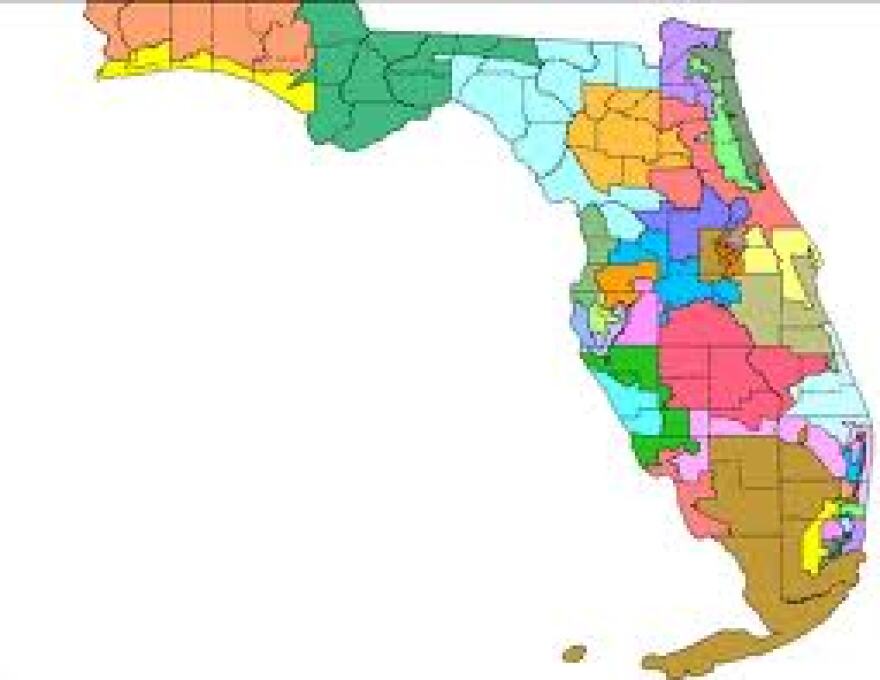A Leon County judge should draw a new congressional map instead of using one the Legislature crafted in a special session earlier this month, a group of voters and voting-rights organizations said in a filing Monday.
Lawyers for the individual voters and the organizations, who sued to get a 2012 redistricting plan struck down, argue that lawmakers haven't done enough to respond to Circuit Judge Terry Lewis' decision that the initial boundaries violated the Florida Constitution's ban on political gerrymandering.
Lewis is expected to hold a hearing Wednesday on whether he should approve the new map and, if so, whether he should delay elections in districts affected by the changes.
"Legislative defendants have now had two opportunities to prepare a constitutional redistricting plan, but they have continued to give partisan goals precedence over compliance with the Florida Constitution," the attorneys wrote in the brief. "Further delay can no longer be tolerated at the expense of Florida’s voters."
Lewis ruled the original map unconstitutional last month after voting-rights organizations and some individual voters argued the plan didn't follow the anti-gerrymandering Fair Districts amendments approved in 2010. In his decision, Lewis said lawmakers put too many African-American voters in Congressional District 5, currently represented by Democratic Congresswoman Corrine Brown, in an apparent effort to channel those Democratic-leaning voters away from surrounding districts. District 5 stretches from Jacksonville to Orlando.
The judge also found fault with an appendage of white voters added to Congressional District 10, now represented by Republican Congressman Dan Webster; Lewis said the voters were placed in Webster's Orlando-area district to try to help the incumbent hold onto his seat.
But the plaintiffs say that lawmakers during the special session made only cosmetic changes to the map, cutting off specific tentacles that Lewis found objectionable but continuing to try to boost GOP prospects in Central Florida through redistricting.
The brief filed Monday specifically blasted legislative leaders' decisions to have the chairmen of the House and Senate redistricting committees write the maps in private meetings without any Democrats present. Lawyers for the plaintiffs said that was similar to the process that created the map Lewis rejected.
"Despite their proclamations about openness and transparency and the revelations of backroom dealings at trial, legislative defendants returned to the shadows when they prepared the revised plan," the lawyers wrote. "The revised plan emerged fully formed from a series of meetings held behind closed doors and then sailed through the special session without modifications while any opposing voices were ridiculed, distorted, or simply ignored."
Specifically, critics of the maps are calling for Congressional District 5 to be redrawn so that it runs east-to-west instead of having a north-south configuration.
In a brief filed Friday, though, attorneys for the Legislature defended the decision not to radically overhaul the district
"No member --- Democrat or Republican --- introduced a plan (in the special session) that did not in some fashion unite minority communities in Jacksonville and Orlando," the Legislature's attorneys wrote. "With strong support from both sides of the aisle, a Jacksonville-to-Orlando district does not reflect a partisan gerrymander."
The plaintiffs' Monday filing also said they are trying to come up with a new schedule that would allow elections to be held in 2014 in those districts affected by the ruling. The Legislature and state elections officials have said voting should proceed as usual under the existing map, with the new districts taking effect after the elections.



